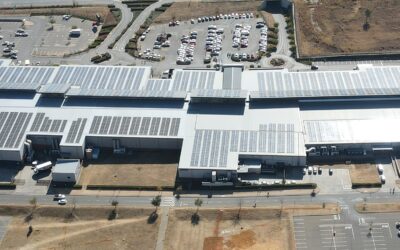The nationwide COVID-19 lockdown, which commenced last week, is expected to have far-reaching implications for businesses in virtually every market sector. A renewed focus on cost efficiency, eliminating wasteful energy consumption practices and long-term sustainability will be key to any business going forward.
This is according to Mila Vicquery, CEO of Energy Partners Intelligence – a division of Energy Partners and part of the PSG group of companies. Vicquery believes that one of the most effective ways to do this is by reducing energy spend. “Electricity is one of the biggest operational costs for any business, yet it is the one cost that is the least static. This lockdown period is the optimal time for a company to investigate its energy use.
“By fully understanding the balance between fixed and variable charges, a business can make more informed decisions. Other insights gathered from the correct analysis, would reveal whether or not a business is on the right electricity tariff to make the necessary changes relating to energy-related spend – this is even more relevant right now with the next wave of tariff increases scheduled for the 1st of April 2020.”
A service provider such as EP Intelligence can help businesses to analyse large amounts of data to ensure it is paying optimal tariffs, while also devising strategies to cut electricity costs with minimal impact on daily operations.
Vicquery notes that the current lockdown has already changed the way that some essential industries operate. “Energy Partners is supporting many businesses that provide essential services during the lockdown, with real-time monitoring, as well as on-site maintenance. From our own client base, we can see that there has been a marked change in the way that these businesses use electricity.
“In the retail sector, bakery operations have started load shifting, since they no longer need to use the bulk of their power during more expensive peak hours. Food producers have also changed their operating hours, to accommodate lower volumes. The healthcare sector, on the other hand, has now become a more intensive power user, with more equipment (such as ventilators) in operation, as well as increased occupancy leading to higher overall power demand,” she explains.
Once lockdown ends, Vicquery says that businesses will need to focus on their core functions to get their operations back to normal. “It is therefore wise to plan now to develop a comprehensive energy strategy which could include outsourcing utilities to capable service providers when the business gets back online. Service providers such as Energy Partners, who are in a position to invest in power generation, refrigeration and heating assets, while selling their services as a utility at a guaranteed reduced rate, can help to reduce a company’s energy costs significantly. At the same time, the business will not need to spend any of their own capital on these assets.”
She adds that this will allow a business to start saving from the moment it begins operating again. “It is critical to make sure that the utilities of essential industries, as well as industries closed during lock down, can operate seamlessly once the lockdown ends. Outsourcing utilities to service providers with cost-effective solutions, can help these businesses to absorb the brunt of the financial impact of the COVID-19 lockdown,” Vicquery concludes.




